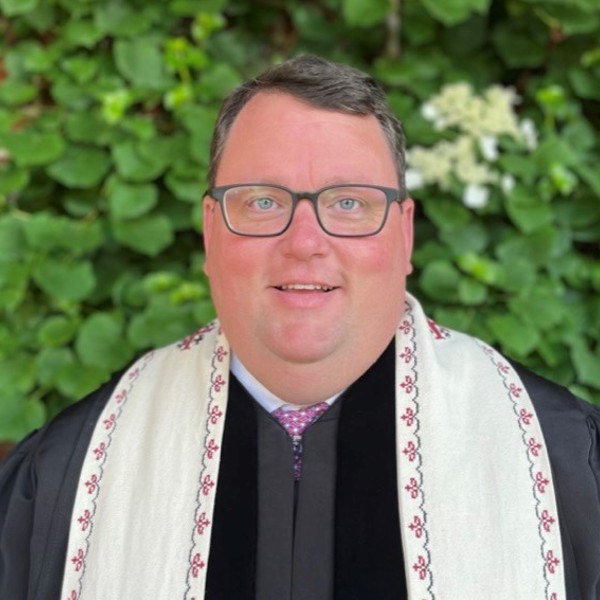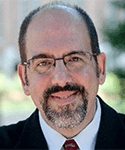Teaching anti-racism in our congregations is a leadership challenge, especially in progressive white churches. While serving as co-pastors in an ostensibly progressive church in a small Southern town, Brian and his wife were told often by members that their sermons on racial justice were “too political.” One member even said, “I don’t understand why you are preaching about racism all the time. We don’t have any racists in our church!”
As researchers, both of us found a surprising amount of resistance to anti-racism in progressive white congregations. Across dozens of recent interviews, Gerardo found that both pastors and members report continual resistance to racial justice efforts within their progressive churches.
When Brian conducted his own research leading to his doctor of ministry degree, he was forced to confront his naivete as a former pastor. Like other pastors of seemingly progressive white churches, he wanted to believe that if he could serve in a progressive church — especially in a metropolitan area or college town — then the work of anti-racism would be welcome. He found that members of progressive churches also want to believe this, thinking that surely there are no willful racists in “real” progressive churches.
Yet Brian found many instances of resistance to anti-racism in white progressive churches. Much of it was subtle, as when a person expressed hesitation to changes in worship, particularly music, that might reflect the increasing diversity of their congregation. Others described fellow church members whispering to each other that their pastor focused excessively on anti-racism, to the exclusion of other important issues.
Resistance was sometimes overt as well. Brian found that in one church, a lay leader publicly and repeatedly blocked all racial justice efforts, deeming many initiatives unnecessarily aggressive. This leader believed that all such initiatives lacked “dignity” and therefore would reflect poorly on the image of their church.
Gerardo, likewise, found resistance in progressive white churches occurring in many forms, including office meetings where members confronted their pastors directly, pressure from members on lay leaders they thought might be sympathetic to their concerns about their church’s anti-racist initiatives, and, in a more extreme case, secret meetings in the homes of longtime members who were actively strategizing to force their pastor to resign.
Taken together, these observations lend support to what Michael O. Emerson and Glenn E. Bracey II found in their new book, “The Religion of Whiteness.” Five-plus years of research, including surveys, focus groups and interviews of people representing the regional diversity of the entire country, grounded Emerson and Bracey’s estimate that two-thirds of all practicing white Christians in the U.S. believe more in the superiority of white people than in Christianity. Even among the more progressive mainline Protestant denominations, they found that 1 in 6 people exhibit higher allegiance to an ethos of whiteness than to the person at the center of their Christian faith.
Similarly, Robert P. Jones, the founder of the Public Religion Research Institute (PRRI), demonstrated in his book “White Too Long” that white Christians, even mainline Protestants, consistently hold more racist views than religiously unaffiliated white people. Christians are, without qualification, more racist in their attitudes than those without any commitment of faith.
How do white progressive Christians obscure the blatant realities of racism? One explanation comes from understanding our racialized epistemology of ignorance. Epistemology is the study of how we know what we know, so an “epistemology of ignorance,” an apparently contradictory term, concerns a way of generating knowledge such that we come to know nothing at all. It was the late philosopher Charles Mills who first wrote persuasively on how white people use an epistemology of ignorance to “misinterpret … the world they themselves have made.”
Not only do we bury our heads in the sand to miss what is obvious, but according to sociologist Jennifer Mueller, white people are adept at finding ways to further obscure the truth of racism. Her research shows how white people are “engaging in a process of knowing designed to resist racial understanding, empathy, and moral responsibility.”
As a college professor, Mueller had assigned students to collect family data on intergenerational wealth transmission and write an analysis. Reading their papers, she found something interesting. Despite hours of instructional time talking about the ways that racism is a problem within us and our society, when it came to writing about their families, the students did not want to believe that racial advantages had helped their families accumulate wealth. Students were reluctant to admit that racism had helped them or their families in any way at all.
Mueller describes a few ways that students rejected the possibility of racial advantage. She found that her students tried exercising a “willful colorblindness” by introducing “alternate factors to neutralize evidence of white privilege and facilitate ongoing use of color-blind frames.” In doing so, students referred to white privilege but included other factors to downplay the significance of that privilege, claiming there were better ways to explain their racial advantages.
Another category is what Mueller calls “mystified solutions,” which are “maneuvers that produce racially conscious logic, but embed doubt and mystery about logically related solutions.” Students claimed that because the problem of systemic racism is so large and complex, there is no hope for them to do anything about it. In this way, they absolved themselves from all anti-racist efforts.
Overall, Mueller found that even after a semester of studying systemic racism, students strived to explain that racism did not apply to them or to their families. In doing so, they crafted ways of distancing themselves and their families from the possibility of racial advantage.
Understanding how an epistemology of ignorance operates, we wonder: How many progressive white Christians in our churches have a similar mindset?
Coming to terms with the temptations of our own cultivated ignorance, leaders of white progressive churches face a difficult challenge in overcoming the resistance, both subtle and overt, to anti-racism in their churches.
Despite their stated justice convictions, progressive white Christians are not immune to racism. Many of us have dedicated time and resources toward cultivating our racial awareness and revealing our blind spots. Nevertheless, we must be wary of believing we have accumulated enough education and insights to make our unconscious, racist biases somehow inert. Even with our best intentions, each of us must admit that they are not.
Our quest for awareness should extend beyond ourselves to the structures of our churches. It is our task to seek out the ways that the culture of white superiority has infected how we organize our congregations and make congregational decisions. This is important because the systems of our well-intentioned anti-racist churches do not automatically produce nonracist outcomes.
Those of us who lead progressive white churches, particularly white pastors, can call our members and our churches to do actions that are within our reach — giving attention to Black and Indigenous voices; having conversations that clarify and (if necessary) confront choices in consumer purchases, budget and hiring decisions, and signs and symbols we display; developing partnerships with similarly concerned others where the church can learn more about anti-racism. Such actions can pave the way for much larger changes — paying reparations, participating in civil disobedience, running for office, speaking in public, writing to teach our communities, working alongside others to benefit people of color, building more intimate cross-racial relationships.
Some anti-racist work by white progressive Christians may be simple and easy. Some actions will be complex and hard. Whatever is done, all of our actions must be done against our repeated ignorance of the reality of racism so often perpetuated among ourselves. In this way, we can equip ourselves to defuse and overcome the resistance found in our faith communities, bringing our people alongside our efforts toward racial justice.



















